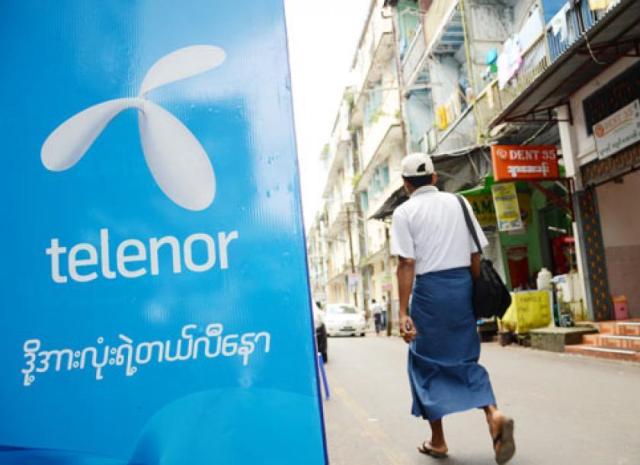
In a recent article published in Dagbladet, Gunn Wærsted, Chairman of the Board in Telenor speaks about the recent highly criticized sale of Telenor Myanmar while putting into words what made the Norwegian telecom giant go through with the sale despite accusations of human rights violations by putting customers in danger.
Gunn Wærsted writes:
Telenor has been under strong pressure from several players to stop the sale of Telenor Myanmar. Many wanted us to stay in the country.
After the end of the military rule in 2011, access to affordable telecommunications services was important for the further development of society. The construction of Telenor Myanmar from 2014 is something everyone in Telenor is proud of, and it was strongly supported by Norwegian politicians.
The company developed into a very profitable business. Financially, we had benefited from staying in Myanmar.
However, the financial situation has not been important for the assessments that were made and that resulted in the sale as completely different conditions have been crucial.
The power of the rifle prevails
Myanmar is a country in civil war-like conditions. In such a situation, ordinary laws and regulations do not apply, and international condemnation has little effect. People are imprisoned without legitimate reasons. There are stories of torture and executions without trial. It is the power of the rifle that prevails.
Over time, maintaining the business in such a situation will lead to violations of Norwegian and international laws as well as sanctions and human rights. Continued operation in a sustainable way is impossible.
In many meetings, Telenor’s board discussed what would be the right solution and the best way forward. It soon became clear that it was not possible to find a solution that met Telenor’s principles of good business conduct, morals, and ethics.
We have been faced with very difficult dilemmas and choices between bad alternatives. In such a situation, principles become important.
Contrasting principles
I learned early on that principals have a price. An important principle is that no employee should have to sacrifice their life or their health. Another important principle is that customers’ safety must be safeguarded. A third principle is that Telenor shall sustainably operate the business based on good morals, ethics, and integrity. And, needless to say: Laws and regulations in the markets we operate, Norwegian and international, must be complied with.
But what do you do when the principles are against each other and not everyone can fully comply with them?
Even now that the sale of Telenor Myanmar has been completed, there are trade-offs we still cannot be open about. Simply because we fear reprisals against 730 employees who are still working in Myanmar and who do not have the opportunity to leave the country.
The overriding principle was to safeguard the safety of employees. No employee of Telenor will have to sacrifice their life.
Increased risk
So what about customer safety? Some have argued that Telenor, to avoid risk to its employees, has put customers at risk.
The brutal but true answer is that no telecom operator in Myanmar can maintain international standards and safeguard customers’ rights under these circumstances. The precondition for avoiding reprisals and very serious incidents for employees is that direct orders from the military regime are followed.
Historical customer data is stored partly digitally and partly physically (on disk). Deleting data of this magnitude is time-consuming and will most likely be detected while it is in progress. In addition, deleted data can be recovered.
Mobile customers in Myanmar have had to deal with increased risk since the coup. Many have used encrypted communication channels. Telenor’s assessment has always been that what entails the greatest risk for customers is the equipment that provides the opportunity for eavesdropping and locating calls while they are in progress.
This eavesdropping equipment has not been switched on at Telenor Myanmar until now. But if employees had been threatened, it would have happened. This is how the brutal logic of the rifle works.
The consequences of the military regime
It goes without saying that there are not many buyers of profitable businesses in Myanmar. Telenor believes the agreement with M1 that was implemented last week is the least bad alternative.
There is a great need for telecom services in the country, perhaps especially now. We register that M1 has sold part of the business to a local company to meet demands from local authorities.
The frightening truth is that if a regime is willing to use force to gain access to historical customer data or use eavesdropping equipment, it will happen regardless of the owner.
Even an employer who demands that employees oppose orders and thereby endanger their life and health, can not prevent the military from breaking in and carrying out what they want.
So brutal are the consequences of the military regime. No companies can solve such consequences individually and on their own.





